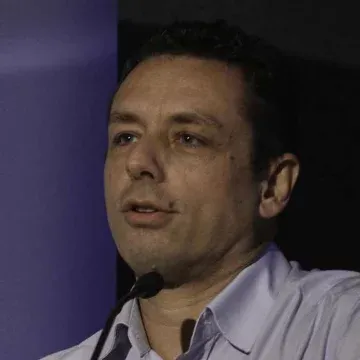About Path4PDE
The PATH4PDE project develops, compiles, disseminates tools and scientific knowledge to support Region of Western Greece in identifying and addressing its climate-related risks and developing transformative pathways to climate resilience.
The Region of Western Greece (RWG) recognizes that Climate change has already begun and is expected to continue, with its effects becoming increasingly evident. Key observations and concerns include:
- A rise in extreme weather events, such as floods and droughts.
- Significant and wide-ranging adverse effects on:
o The environment and ecosystems
o The economy and society
o Human health and overall well-being
At national level, the most vulnerable sectors are affected by climate change:
- Water resources management
- Forest ecosystems management
- Agriculture, livestock, and aquaculture
- Public health
- Land and coastal infrastructure
- Energy
- The built environment
- Tourism
The Key Community Systems (KCS) that have been prioritized by the RWG are those that are expected to moderate to high short-term vulnerability, focusing on targeted adaptation policies on the sectors that are most exposed to climate change risks. In alignment with the approved Adaptation Plan to Climate Change for the RWG, both the Region Flood Risk Management Plan and Water Basins Management Plan are currently being reassessed to ensure strategic alignment with regional climate resilience goals.
These plans primarily focus on Water Management and Climate-proofing of critical public infrastructure of the KCS and are being re-evaluated to align with shared goals for climate resilience. Recognizing the emerging and existing needs for coordinated actions, RWG also participates in the LIFE-IP AdaptinGR project. LIFE-IP AdaptinGR aims at supporting the implementation of the National Adaptation Strategy and the 13 Regional Adaptation Action Plans during the 1st policy cycle (2016-2025), while preparing the transition to the next policy cycle (2026+), through appropriate multilevel actions (national, regional and local level).
The Region
The region of Dytiki Elláda (Western Greece) is NUTS2 level region located in the SouthWestern part of mainland Greece and the NorthWestern Peloponnese, with a population of 680,000 residents. Patras is the regional capital and the third-largest city of Greece, with population of about 280,000 inhabitants.
Geographically, the region features a predominantly mountainous landscape, covering 45.3% of its area, while 25.6% is classified as semi-mountainous land, and 29.1% as lowland.
The region is governed by a directly elected District Governor, and a Regional Council made up of 45 members. Key responsibilities include a wide range of policy areas, such as regional planning and development, natural resource management, energy, employment, tourism, transport, health, and education.
Administratively, the region consists of 19 municipalities which operate within the same policy framework at the local level.
The region’s economy is mainly driven by agricultural and primary sectors, supported by a notable presence of manufacturing and construction industries.
Path4PDE Members and Team



Dr. Marina Kouta

Yorgos Stephanedes, Prof. em.


Spiros Sirmakessis
- Professor in Electrical and Computer Engineering Department.
- Director of eBusiness and User Experience Lab.
- Board Member of the University of Peloponnese.
- Director with Knowledge Dissemination and Technology Consulting from Academia to Industry in the Technology Transfer Unit
- Board Member of Computer Technology Institute & Press “Diophantus”

Marios Katsis
Proficient in all layers of an application's development; having a comprehensive understanding of front-end, back-end, and database technologies, and able to work on all parts of an application, from the user interface to the database; able to analyze and solve problems, write clean, maintainable and efficient code, and have experience working in a team and collaborating with other developers.

Dimitrios Vossos
A versatile and skilled software engineer who can work as a fullstack developer, specialized in middleware application development using the Laminas Mezzio framework. His professional experience includes Android native development, database administration, system administration and micro controller development, like Arduino, ESP32.

Petros Karkoulias
Responsible for designing and developing mobile applications for a variety of platforms such as iOS and Android, using either native or cross-platform SDKs. Expertise in both visual design and technical development aspects of mobile app development, full workflow coverage, from design board to release.

Panos Papadatos
Diploma in Electrical and Computer Engineer with a Master in Business Administration. Responsible for submitting, planning, executing and closing EU-funded projects; deep understanding of the EU funding mechanisms and regulations with strong project management, financial management, communication, analytical and problem-solving skills.
The Path4PDE logo concept
The "Path4PDE" logo is a refined visual representation of the project's commitment to progress, climate resilience, and environmental sustainability. The road element symbolizes a purposeful path forward, representing growth, sustainable development, and resilience efforts to climate change.
Natural motif i.e. leaves, water and the sun are used to highlight the importance of renewable resources, ecological harmony, and sustainability in the project's objectives.
The color palette reflects vibrancy and optimism, while the"Path4PDE" name reflects the project's identity and its holistic approach to advancing climate resilience and ecological preservation.
The combination of these elements forms a dynamic and inspiring visual narrative, which effectively aligns with the project’s mission to advance transformative change and strengthen resilience in the light of environmental challenges.

